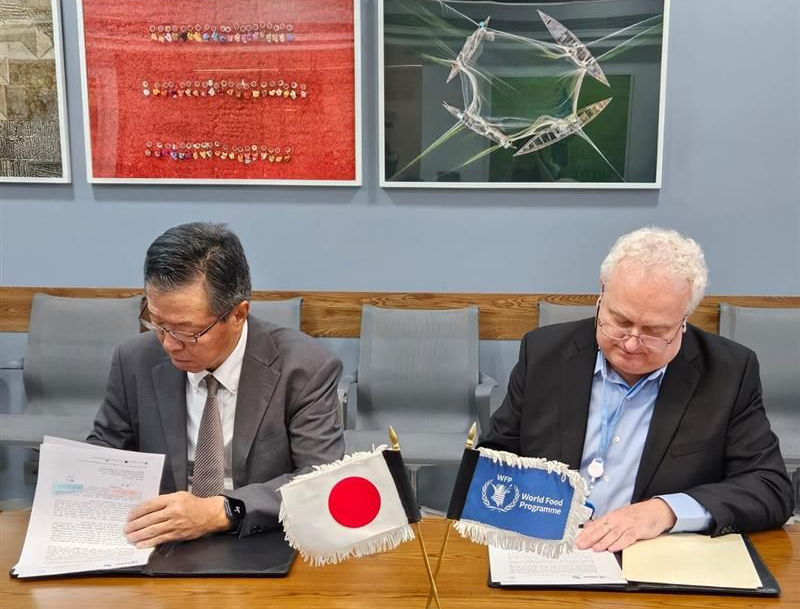News Flash
News Flash

DHAKA, Sept 29, 2025 (BSS) – Japan has allocated 3.4 million US dollars to The United Nations World Food Programme (WFP) to support lifesaving assistance for Rohingyas and vulnerable host communities in Bangladesh.
“Japan stands firmly with Bangladesh and the international community in ensuring the basic needs of the Rohingya population are met, and that the most vulnerable members of the host communities, particularly women and children, are also supported,” Japanese Ambassador SAIDA Shinichi said while announcing the contribution, said a press release here today.
He expressed concern over the growing humanitarian needs in the camps amid a sharp decline in international funding.
“Japan remains committed to working with WFP and all partners to prevent a worsening humanitarian crisis and contribute to a long-term solution where the Rohingya can return to Myanmar safely and with dignity,” the envoy added.
With this latest contribution, WFP will provide monthly food assistance and nutrition support to more than 100,000 Rohingyas and 2,000 vulnerable Bangladeshis.
Families will receive e-vouchers to purchase food items including rice, lentils and fresh vegetables at designated camp outlets.
Special nutrition programmes will continue to benefit young children and pregnant or breastfeeding women both inside and outside the camps to prevent and treat malnutrition.
Since early 2024, nearly 150,000 more Rohingya have fled to Cox’s Bazar camps due to intensified fighting in Myanmar’s Rakhine State, pushing the total population beyond 1.1 million.
However, dwindling international support has placed the humanitarian response at risk, threatening critical services such as food, cooking gas, nutrition, healthcare, education, and protection.
Unless new funding is secured, at least US$60 million over the next six months and US$167 million over the next year, WFP warned it could face major disruptions to food assistance from December 2025.
“We are deeply grateful for Japan’s steadfast partnership and the generosity of the Japanese people,” said Dom Scalpelli, WFP Country Director in Bangladesh.
“The crisis is at a crossroads. We call on all partners to help prevent further deterioration of the humanitarian situation in the camps. WFP will continue to stretch every dollar to ensure efficiency, transparency and value for money,” he said.
The agency noted that it has already achieved US$19 million in savings through programme optimization, financial streamlining, interagency cost-sharing and logistical efficiencies.
As a result, 82 cents of every dollar now goes directly to refugee support – up from 71 cents in mid-2023.
Since the start of the Rohingya crisis in August 2017, Japan has contributed more than US$240 million to WFP and other UN agencies as well as NGOs in Bangladesh, reaffirming its role as one of the leading donors to the humanitarian response.
WFP is the world’s largest humanitarian organization, working to save lives in emergencies and to build pathways toward peace, stability and resilience for communities recovering from conflict, disasters and climate change.